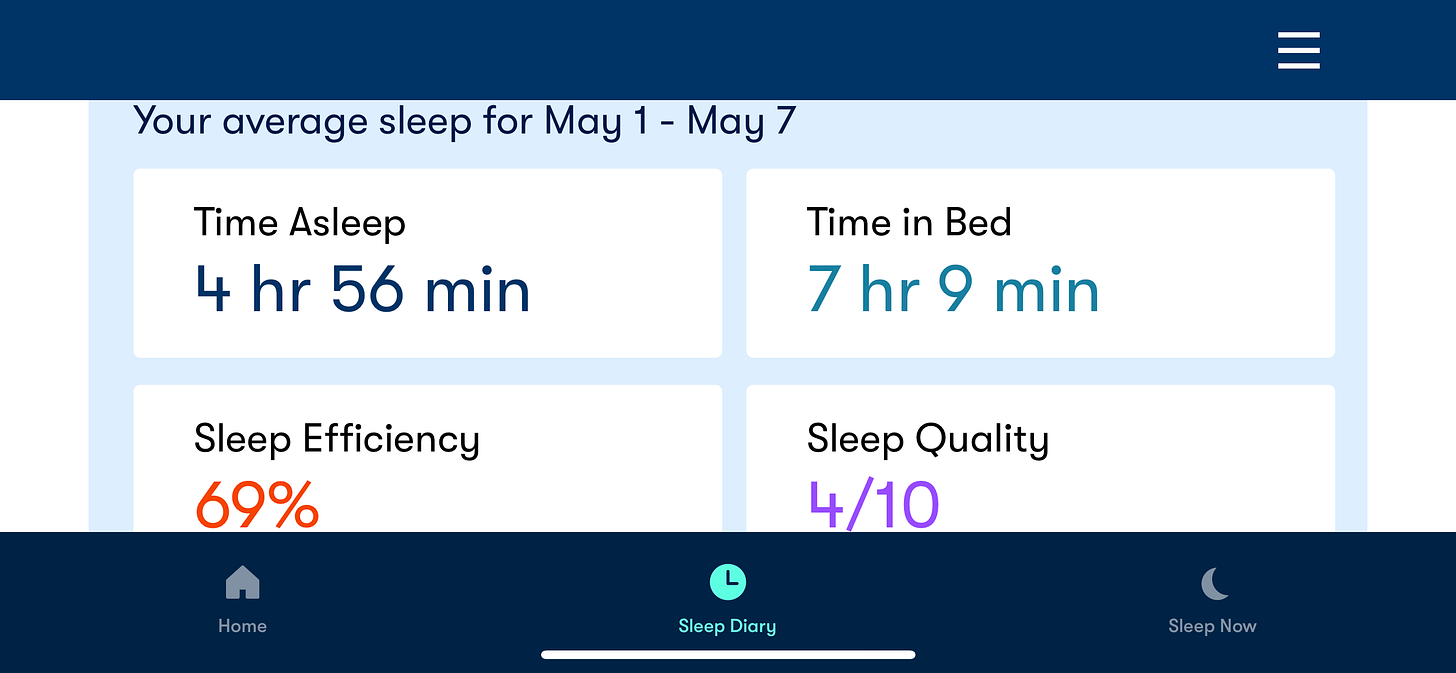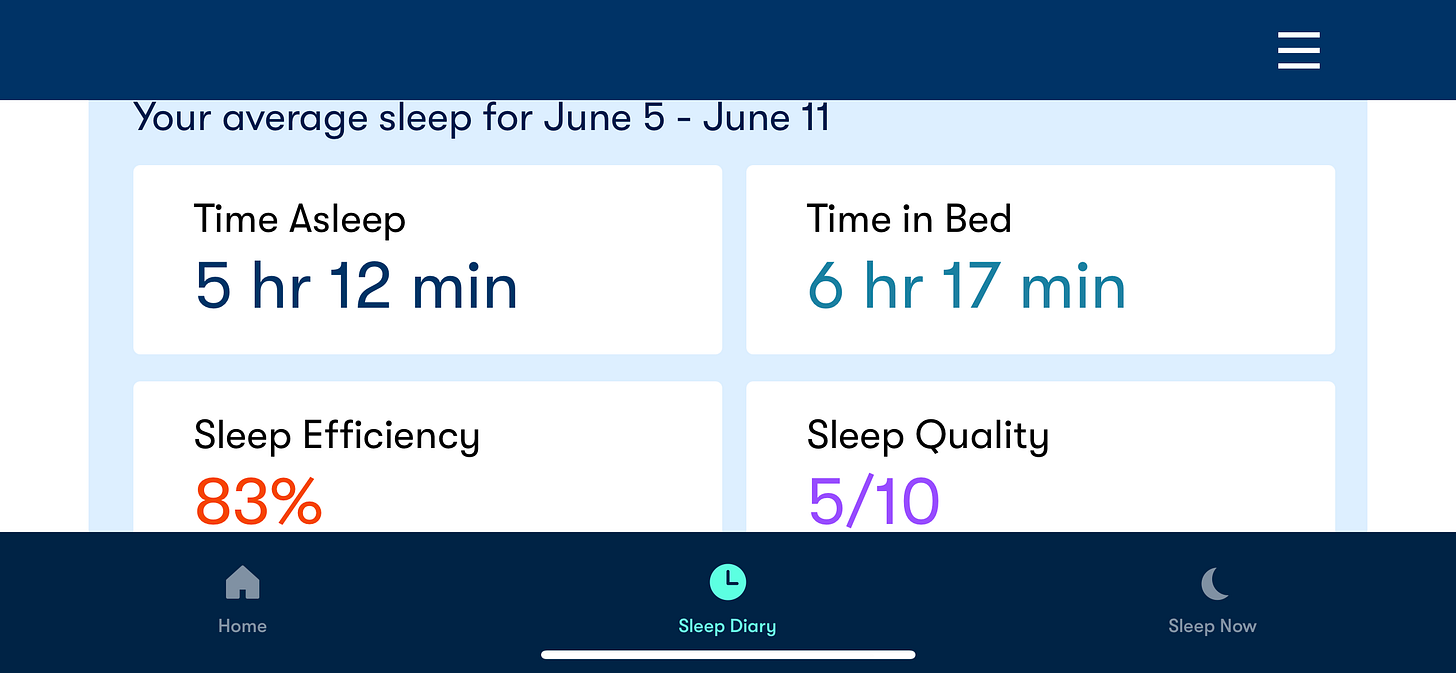For nearly two months I’ve been on a course. My subject - sleep. The Sleepio app, recently approved by NICE for prescription on the NHS, is an online course in cognitive behavioural therapy for insomnia.
Every morning you complete a very detailed sleep diary. which informs the personalised instructions you get in six online tutorials from an animated character called the Prof. Over the weekend I completed the final online session and graduated. So what did I learn and how did I do?
The two snapshots below of my sleep diary tell the story. This is how I slept right at the beginning of the course:
And this is how things looked in the final week of the course:
As you can see, the average time I sleep each night has only increased by a quite modest 16 minutes. But the key figure to look at is sleep efficiency, the percentage of time spent in bed and asleep. One of the course’s aims is to get that figure up and mine has increased from 69% to 83%, and on several nights in the last couple of weeks of the course I hit the target of 90% or more.
You can also see that my time in bed has come down by nearly an hour to 6 hours and 17 minutes a night. That is due to the fact that midway through the course a concept called sleep restriction was introduced. This involved choosing a limited window for sleep - in my case 11pm until 5 am - and trying to make sure you spent as much of that time as possible asleep. The idea is that you go to bed when you are ready to sleep, not to read, or scroll through Twitter, or watch TV, so breaking any link in your mind between being in bed and being awake.
On recent days I have broken the rules a little, staying in bed beyond six hours, but the “Prof” told me in our last session that I can start stretching my sleep window as long as my sleep efficiency rating remains high.
What then is my verdict on Sleepio? Overall I’m pretty satisfied. While it has not had a dramatic effect on the time I’m asleep, and I’d still like to get that above 6 hours a night, it has meant there are fewer occasions when I am lying awake in the wee small hours, my mind racing. And its most important contribution to my wellbeing is that, by forcing me to quantify my sleep each morning, it has made me realise my insomnia isn’t as big a problem as I thought. I’m more relaxed about sleep.
But my research doesn’t end here. Last week I travelled to the Royal Devon and Exeter Hospital to enrol in a clinical trial looking into links between Parkinson’s Disease, genetics and sleep disorders.
The Patient Information Sheet for the study tells me that it was discovered very recently that the brain has a waste disposal mechanism called the glymphatic system, which works best during sleep. Researchers believe that changes in a gene AQP4 may prevent the glymphatic system working well and may also be linked to both neurodegenerative diseases such as Parkinson’s and to sleep disorders.
At the hospital I met one of the doctors involved in the clinical study. She took quite a big blood from me (nearly an armful, as Tony Hancock might have said) and then I had to fill in a long questionnaire about my health history and undergo some tests to measure my Parkinson’s symptoms and my mental agility. Most taxing was a memory test - “red, velvet, church, face…damn, what was the fifth one? - and being asked to count back in. 7s from 100.
Still, I seem to have passed and the next stage is exciting in that I get a gadget. In a few days a package will arrive at my home with a smartwatch which I have to wear day and night for two weeks. It will give the researchers a precise readout of my sleep patterns, backed up by a paper log I have been asked to keep.
For me, this clinical trial is ideal, combining three of my great interests - Parkinson’s, sleep and gadgets. So in the words of an American TV news anchor, keep tuned for further updates, more as we have it…






Will the sleepio be available for other PWP?
I would be very keen to try it!
Good progress. Congrats.